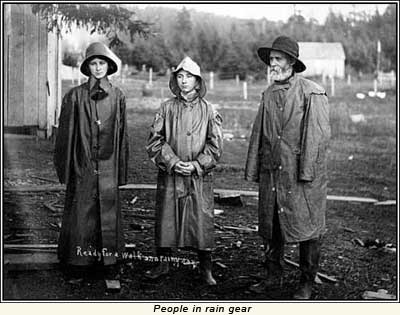Project Abstract
 Olympic Peninsula Community Museum Project: A Library/Museum Cultural Collaboration
Olympic Peninsula Community Museum Project: A Library/Museum Cultural Collaboration
Communities in the Northwest Olympic Peninsula region have experienced ongoing cultural conflicts as a result of homesteading, tribal customs, immigration, tourism, aging populations, and the effects of a struggling natural resources-based economy. As a result of a community planning process in 2000, community members identified the need to understand and promote cultural understanding in order to help achieve their regional educational, economic, and social goals. With the assistance of local and regional partners with specialized expertise, these communities have come together to undertake a regional Community Museum Project to help educate all learners from children to elders. The Community Museum Project is a collaboration between local community partners, The University of Washington Libraries, the North Olympic History Center (formerly known as the Clallam County Historical Society) (a Museum), and other partners to address the cultural, social, and economic challenges of the region.
- Goal 1: Cross-cultural Collaboration and Knowledge Sharing—develop a community-driven model for surfacing, preserving, and sharing culture, history, and traditions and for increasing understanding within and between differing cultural and age groups.
- Goal 2: Accessibility—develop a model for providing access to comprehensive cultural information to groups that have historically been deprived of such access.
- Goal 3: Sustainability and Adaptability—create a cost-effective, workable model that promotes sustainable and self-motivated lifelong learning by other communities.
Major activities of the project include the following:
- Activity 1: Collaborative Community-based Project Design – a project team of members from the communities, The University of Washington, and partnering organizations, under the expert guidance of an advisory board, will carry out the project over a two-year period utilizing IMLS grant funds.
- Activity 2: Cross-Organizational Digitization – the project team will surface, select, digitize, and create metadata for 12,000 images, oral histories, objects, and other cultural artifacts from a multitude of public and private collections, including those in people’s homes. Preston Gates & Ellis, an intellectual property firm in Seattle, will consult on digital right management issues in relation to this project.
- Activity 3: Documentation of Artifacts, Stories and Events – a community documentation team will be formed and trained to photograph objects in homes, videotape events and record oral histories. Preston Gates & Ellis will develop the permission process for these activities
- Activity 4: Collaborative Community-based Curatorial Process – the project team will develop and implement a guided process of community participation in the selection and curation of exhibits.
- Activity 5: Web Site Construction – the site will be developed and hosted by The University of Washington. Internet2 staff will consult on use of middleware and broadband technologies in this project.
- Activity 6: Exhibitions and Arts Workshops – the launch of each on-line exhibition will be accompanied by physical exhibitions and workshops developed by the West Olympic Council on the Arts.
- Activity 7: Curriculum Development and Teacher Workshops – each on-line exhibition will be accompanied by curriculum materials and teacher workshops developed by the UW Center for the Study of the Pacific Northwest.
- Activity 8: Documentation and Training – the project team will create a model Development Kit that will contain all the tools and knowledge necessary to create a Community Museum.
- Activity 9: Dissemination and Marketing – the Community Museum Web site will contain a section dedicated to project design, results, press releases, and promotion of the model program.
Anticipated Results
This Community Museum Project will demonstrate that small, financially burdened communities can collaborate with institutional partners to provide cost-effective access to cultural information and learning to culturally diverse populations, lifelong learners, the general public, and academic users.
|

